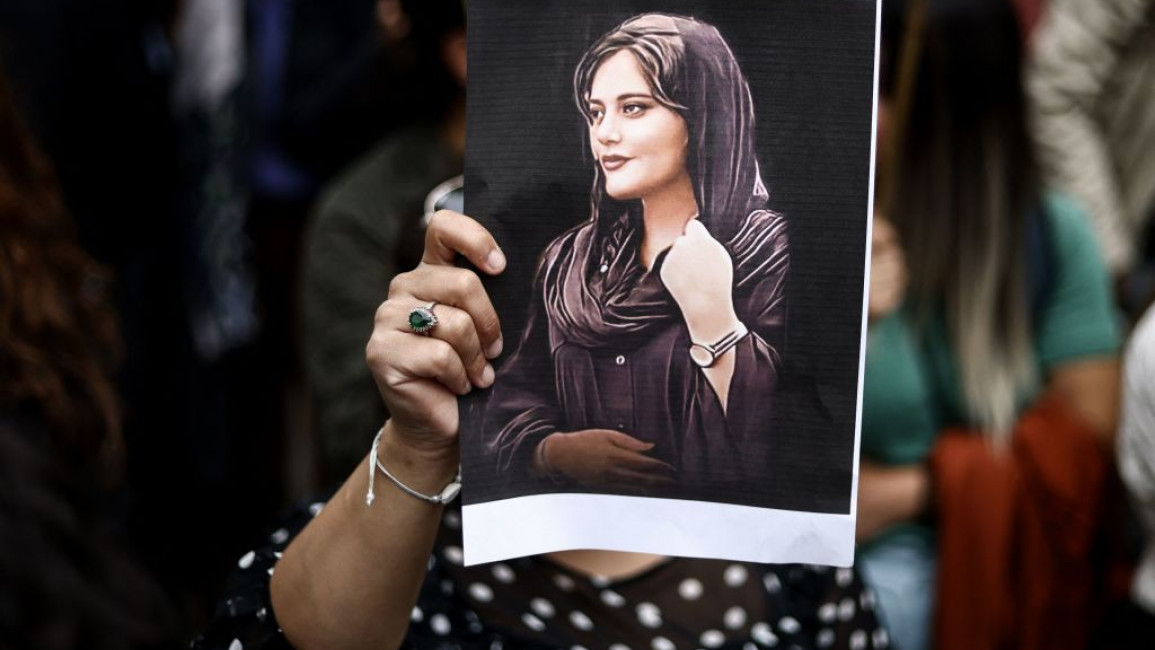Iran orders probe into 'shocking' police brutality video
Iranian authorities on Wednesday ordered an investigation into a video showing officers savagely beating a protester that rights groups said exposed the sheer brutality of the police repression against protests sparked by the death of Mahsa Amini.
Iran has been rocked by over six weeks of protests following the death of Amini who had been arrested by the notorious morality police in Tehran, with the movement now seen as the biggest challenge to the Islamic republic's leadership since the 1979 revolution.
Activists say dozens have been killed and thousands arrested in a crackdown by the security forces who have been accused of firing on protesters at close range, bludgeoning them with batons and other abuses.
Authorities in Iran are continuing to violently crush protests in Iran. pic.twitter.com/MbFOecYd5Q
— Amnesty International USA (@amnestyusa) November 2, 2022
A video that appeared late on Tuesday on social media, shot at night on a mobile phone purportedly in a district of Tehran, showed a squad of around a dozen policemen in an alley kicking and beating a man with their batons, as other officers on motorbikes looked on.
The man initially tried to cover his head with his hands, before the sound of a gunshot is heard and he is run over by a police motorbike. His motionless body is then abandoned.
"This shocking video sent from Tehran is another horrific reminder that the cruelty of Iran's security forces knows no bounds," Amnesty International said.
"Amid a crisis of impunity, they're given free rein to brutally beat and shoot protesters," it added, calling on the UN Human Rights Council to "urgently investigate these crimes".
Iran's police force announced in a statement published by state news agency IRNA that an order had been issued to "investigate the exact time and place of the incident and identify the offenders."
"The police absolutely do not approve of violent and unconventional behaviour and will deal with the offenders according to the rules," the statement added.
According to an updated toll issued Wednesday from the Norway-based Iran Human Rights NGO, 176 people have been killed in the crackdown on the protests sparked by Amini's death.
Another 101 people have lost their lives in a distinct protest wave in Zahedan in the southeastern Sistan-Baluchistan province.
IHR has warned that these figures are a minimum, with information slow to flow in due to disruptions of the internet by the authorities.
Thousands of people have been arrested nationwide in the crackdown on the protests, rights activists say, while Iran's judiciary has said 1,000 people have already been charged in connection with what it describes as "riots".
The trial of five men charged with offences that can carry capital punishment over the protests opened Saturday in Tehran.
"Instead of accepting people's legal demands, the Islamic republic is clamping down with repressive measures and show trials," said IHR director, Mahmood Amiry-Moghaddam.
"The charges and sentences have no legal validity and their sole purpose is to commit more violence create societal fear," he added.
Amini's death was according to family members caused by a blow to the head while in custody. The Iranian authorities contested this explanation and later denied it in an official medical report.
The protests were fuelled by anger over the strict Islamic dress code for women in Iran - which the police who arrested Amini were enforcing - but have become a rallying point for popular anger against the regime that has ruled Iran since the fall of the shah in 1979.
While there have been outbursts of protests in Iran over the past two decades the current movement has regularly broken taboos, united social classes and largely spread nationwide.
Demonstrators gathered in Mahsa (Jina) Amini’s hometown to commemorate the 40 days of mourning since her death in custody of Iran’s "Morality Police."
— Human Rights Watch (@hrw) October 30, 2022
Will the Iranian authorities end their brutal crackdown and heed the voice of its people? pic.twitter.com/nTG2OP6lMT
The challenge for the regime is compounded by the custom in Iran to mark 40 days since a person died, turning every "chehelom" 40-day mourning ceremony for the dozens killed in the crackdown into a potential protest flashpoint.
"Funerals and 40-day commemoration ceremonies for killed protesters are increasingly becoming the impetus for further unrest," said Kita Fitzpatrick, Iran analyst at the Critical Threats Project of the American Enterprise Institute.
"This places the regime in a bind: they run the risk of inadvertently sustaining the protest movement in attempting to violently suppress it."



